It was July 1, 2019, and David Pratt Jr., a fifth-generation coal miner living in Linefork, Kentucky, was in the main office at Blackjewel’s Cloverlick #3 mine, filling out his shift notes at the end of his nine-hour day, which often turned into 10, when a foreman told him Blackjewel had filed for bankruptcy. But, he said, no need to worry. It wasn’t set to impact day-to-day operations. There would just be a momentary restructuring and the men would come back to work days later, the foreman said.
“It turned a complete 180 within an hour,” Pratt recalls.

Just minutes after the initial news, the miners, including Pratt and his father, David Pratt Sr., who had just come in for his shift, were instructed to leave their tools at the mine. They were then asked to leave the property, where they had labored for years, and weren’t permitted to come back until further notice.
That Friday, Blackjewel miners deposited their last paychecks. Then, early the next week, their checks suddenly bounced. Roughly 1,700 workers were now unemployed and bewildered, with many owing their banks hundreds of dollars for bills paid and later overdrawn from their accounts. The company had laid off miners at locations in Wyoming, Kentucky, West Virginia, and Virginia.
A handful of miners in Linefork noticed coal was being loaded into train cars at the nearby processing plant and alerted their colleagues. They’d later learn that the roughly 20,000 tons of coal they had labored for, still sitting on the train tracks, was set to depart at Blackjewel’s command. The coal represented over $1 million in profit for a company that still had not made good on their last paychecks.
Enraged, a small coalition of miners stood on the tracks to prevent the train from leaving. Later, even more miners, including the Pratts, formed an encampment on the train tracks just a few miles from where the coal sat. “It was the point to prove that you can’t shit on the common people and get by with it,” Pratt Sr. says.

The Pratt family, along with a core group of miners, camped there from July to early October, weathering the summer heat, waiting for answers for themselves and their families and, ultimately, payment so they could move on. They raised broad white tents protecting themselves and their families from the elements and organized a makeshift kitchen, outfitted with coolers and basic cookware. Operating in shifts, a few of the men would sleep in small tents at the encampment’s edge.
The miners’ communities, shaken by the news, rallied around them, often bringing donations to the tracks and spearheading crowdfunding initiatives. Their plight struck a chord with national newspapers and broadcast stations seeking to make an example of then-President Donald Trump’s failed promises to the coal industry. Their numbers thinned out in September as bills piled up and safety nets waned. Evenings fell colder and a due date for their owed wages sat wrapped in a confusing bankruptcy process. It was time to get back to work. Some of the miners settled for significantly lower wages at other local employers. Others enrolled in school or training programs. A few eventually found employment with other coal mine operations that remain.
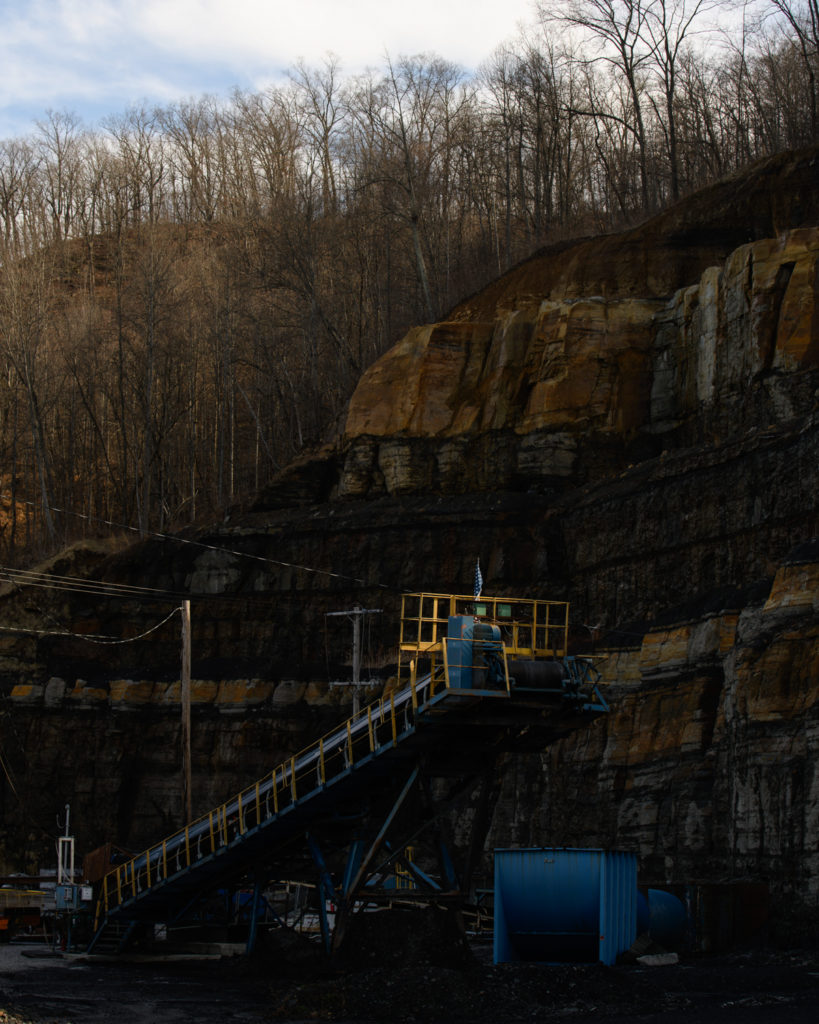

Since David Pratt Jr., 31, first entered the workforce, coal has been on a steep decline unparalleled in the ups and downs witnessed by four generations of Pratt men. Central Appalachia, encompassing eastern Kentucky, has been the hardest hit. More than half of the United States’ coal mines operating in 2008 have since closed, with the majority of those in Appalachia. And 2019 proved pivotal nationwide. Just months after Blackjewel, Murray Energy, the largest private coal company in the U.S., filed for bankruptcy and became the eighth coal company to do so in that year.
Further fueling the instability brought about by coal mine bankruptcies is the fact that coal mining remains one of the highest-paying jobs available in Central Appalachia. The region’s towns and cities were built by the industry. According to the U.S. Bureau of Labor Statistics, the annual mean wage for the coal industry was roughly $63,000 in 2020. And it’s not uncommon for those who work overtime to earn up to $100,000 a year.
The Biden administration’s Bipartisan Infrastructure Investment and Jobs Act was supported by leadership of the United Mine Workers of America earlier this year and recently passed in the Senate. The act intends to provide more funding for mine reclamation and carbon capture projects, prioritizes green energy and infrastructure projects that employ dislocated coal workers, and expands broadband access to both urban and rural communities. But miners, burned by years of fallout from the industry, feel investment in the region is far overdue.
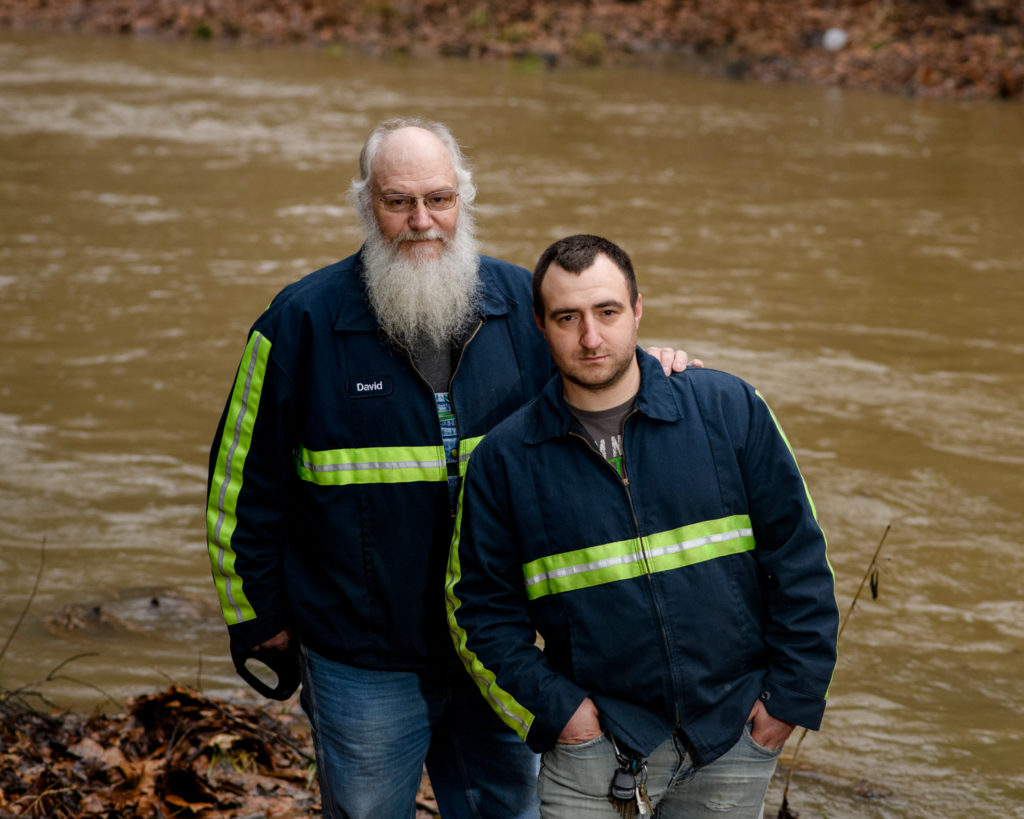
While there have already been concentrated efforts to reinvigorate local economies through startup initiatives, investment in tourism, and manufacturing jobs, few industries can offer as much upward mobility for a region gripped by generational poverty as King Coal.
“If you went back to eastern Kentucky and you went to every coal miner around and you asked would they be interested in a stable job away from coal mining … the vast majority would say, ‘If it’s stable, I’ll take it,’” Adam Ratliff says. Ratliff was laid off from his mining job with Cambrian Coal at the end of 2019 after it declared bankruptcy and was sold to another company.
“But where are they at?” he continues. “You can’t take a job away with nothing in place to replace it. You can promise that you’ll give me a job building windmills. You can promise you’ll give me a job doing this, doing that, but where’s it at? If it’s 15 years down the road … then you’re not giving me anything. All you’re doing is taking my job.”
Many miners have worked in the industry long enough to know when their employer is in desperate trouble. The warning signs have become prevalent. For example, a company will cease repairs on mining equipment — even though doing so puts miners in danger and curtails productivity. Both Blackjewel and Cambrian limited repairs and ceased ordering additional supplies just weeks before their bankruptcies, according to their former employees. In the past, amid bankruptcies, coal companies have often restructured or sold off assets while attempting to keep employees on payroll.
Cambrian’s former workers did receive their last paychecks before its mines and processing plants were sold off to other companies, some of which are operational today.
Still, Ratliff, a third-generation coal miner who began working in the industry when he was 18, saw no future in returning. He found himself forced to choose between home and the prosperity he could bring to his family already weary from the instability of the coal industry. His wife and three children moved roughly three hours away from where they grew up so that he could find work as an industrial maintenance technician supervisor in Georgetown, Kentucky. His father was laid off following Cambrian’s bankruptcy and became a truck driver.
So far it’s been a challenging adjustment, he says, especially with the children navigating school amid a pandemic. He feels they’ve uprooted everything they know. It’s been difficult to adjust to a culture where many people his age seem to have followed a more traditional path of higher education and assured career mobility. He sees his fellow miners back home in eastern Kentucky as untapped potential; hardworking, multi-talented individuals who don’t need to prove their abilities through book smarts alone. The region just needs opportunities.

Out of the dust
David Pratt Sr. had never been laid off in his 40-year career until Blackjewel, even though the James River Coal Company, where he’d worked previously, had declared bankruptcy multiple times. There, he recalls, his colleagues were like a family.
Pratt had never missed a day of work until he was diagnosed with late-stage Hodgkin’s lymphoma in 2001. “They told me, get my youngest Christmas presents in March,” Pratt recalls regarding his terminal diagnosis. At the time, his son David was just finishing elementary school.
Pratt views the five years of cancer treatment as a rare blessing, because he got to spend time with his family. When he worked in the mines, there were days he didn’t even come home from the job following his shift. It’s not unusual for miners to go days without seeing the sun as their shifts stretch from dawn to dusk. Once he went into remission, he forfeited his disability payments and returned to mining.
“The Bible says earn your keep by the sweat of your brow,” Pratt says.
For him, the collapse of Blackjewel was a needed catalyst to change his family’s legacy. While he knows how strange it may sound to others, he was still “tickled to death” regarding the layoffs.
Motioning to his son David, he says, “It got him out of the coal mine. My grandkids won’t be in the coal mine. I won’t have to worry about them. You know, they gonna grow old, and, hopefully, naturally. Not have to breathe no dust and all this stuff.”
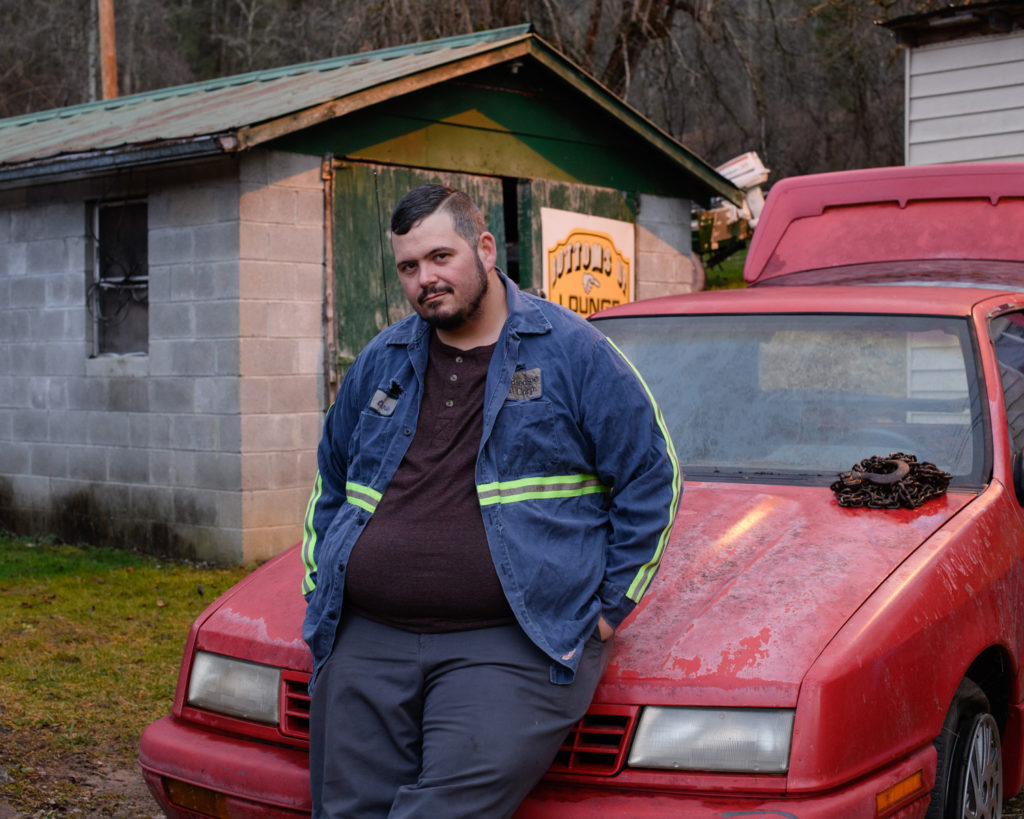
David Pratt Sr. was diagnosed with black lung in 2001. He’s now 61 years old and doesn’t think he’ll live to see 70. Today, he’s a truck driver, a growing profession among many former coal miners as it requires no formal education and many truck drivers can opt to work over 40 hours, bringing home more pay. David Pratt Jr. will soon be following in his footsteps and have his commercial driver’s license completed this fall.
The plight of many other career miners has often been dictated by their age. Older miners have found it more difficult to balance further education with the demands of supporting a family. They often report feeling invisible to employers in other industries looking for a more able-bodied workforce. The brutal working conditions often leave them with a disability or injury, which is often under reported for fear of getting laid off without pay.
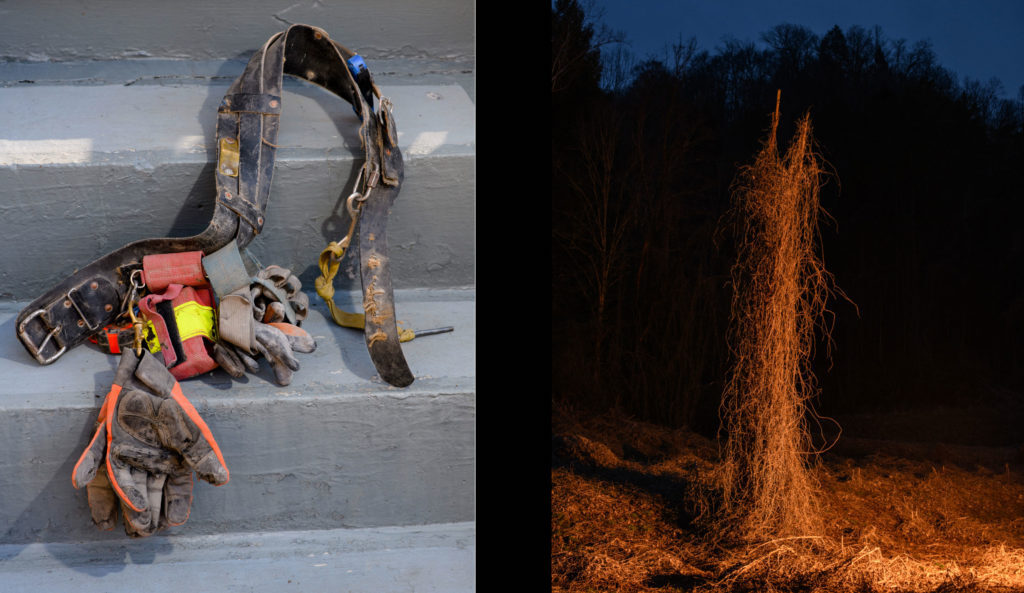
Leroy Harris of Delphia, Kentucky, started in the mines at 15 years old. He worked his way from shoveling raw material at the face of the mine to working nearly every position there was to offer, making him an attractive recruit for coal companies. Roughly five months before the layoffs, he started working for Blackjewel because it was offering higher wages than the last mine where he’d worked. This career move put him just two weeks shy of meeting requirements to qualify for unemployment benefits at Blackjewel. Harris and his wife, Nancy, provide for six children in their blended family. The nearly four-month stint Harris was unemployed was the longest he had ever faced, leaving him to pick up carpentry work and odd jobs to put food on the table.
“It hurt [my kids], but I always tried to, you know, kind of keep it comfortable for them so they wouldn’t have to suffer as much,” he says. “There was quite a few times I went hungry because I didn’t want to see them do without.”
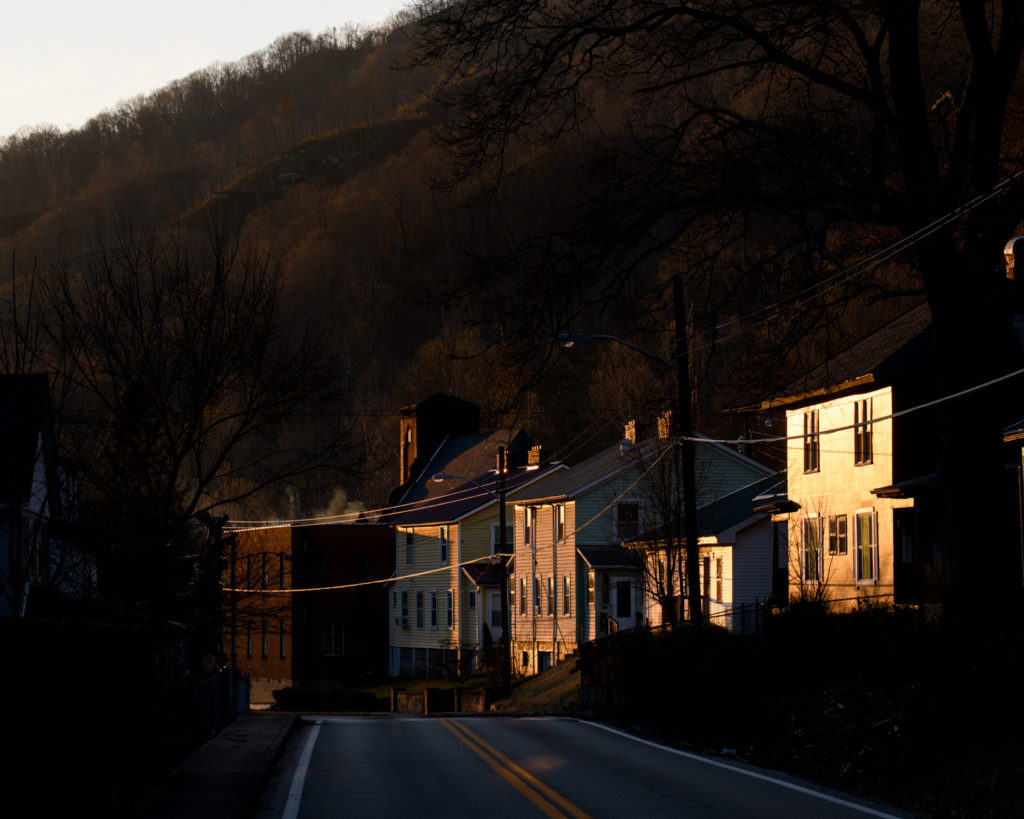
Harris returned to the industry when he found a job with another coal mine in Leslie County, Kentucky. He says he’s making enough money to pay the bills but not as much as he had prior to the layoffs. He’s uncertain about coal’s future and opportunities for his children. Should he be laid off again, he imagines he’ll have to turn back to carpentry and odd jobs. “I’m too old to go back to school,” he says.
Echoing the sentiment of David Pratt Sr., Harris imagines a life away from coal for his children, even if it means disconnecting from the rich landscape they call home.
“I’d rather them stay around close, but … I’d rather see them go off from here and actually make something of themselves than stay here and have to suffer. I don’t want them going through what all I’ve been through,” he says. “And as far as mining, I don’t want them to do it.”

Historically, miners have been left vulnerable to predatory practices by the companies they work for. It wasn’t until 2006 that a statute was added to protect miners from getting fired or disciplined for reporting mine safety violations in Kentucky. In 2018, House Bill 2 limited coal miners’ ability to claim workers’ compensation for black lung. And while the 1988 Worker Adjustment and Retraining Notification (WARN) Act states that an employer of a certain size must give employees at least 60 days’ notice for an impending mass layoff, Blackjewel simply violated it.
David Pratt Jr., along with many of his colleagues, has yet to see the extent of what he is owed. His youngest daughter was wrapped in his arms, still being bottle fed, as he and his family occupied the tracks in protest two years ago. Now she’s walking and talking and will never know her father as a coal miner. He says he’s only been paid for two weeks of work and is still owed eight days of vacation time and WARN Act pay, estimated at about $13,000. He doesn’t trust that Blackjewel will be held accountable and expects to receive only about $6,000 out of the bankruptcy court.
“[CEO Jeff Hoops is] probably going to get a slap on the wrist because of all the ties that he’s got over there, and that would probably be about the end of it,” he says. “Our judicial system is screwed up when it comes to blue-collar workers.”




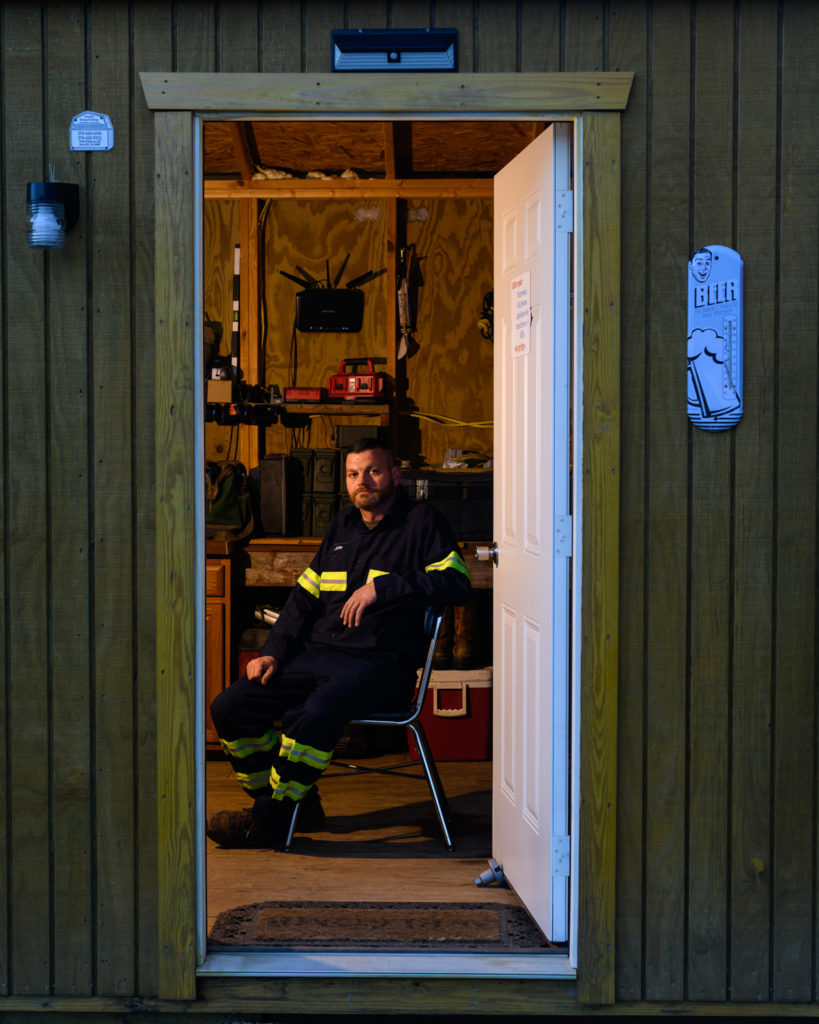
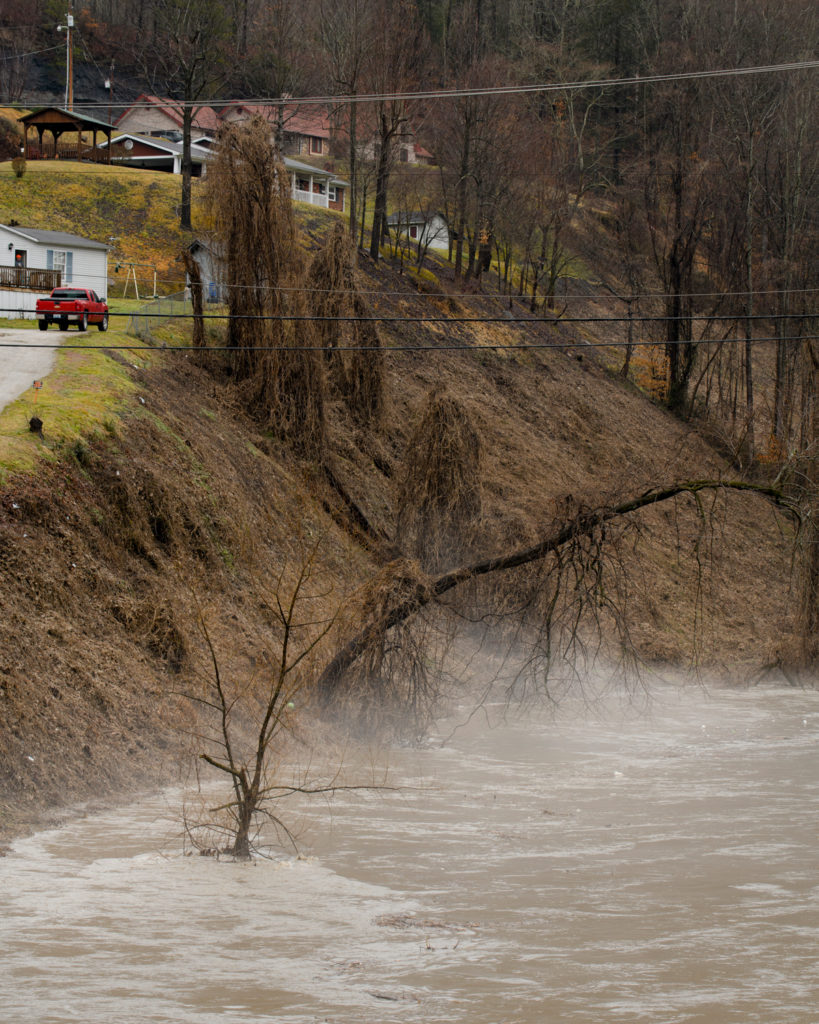
This story is part of a reporting fellowship focused on life in Appalachia produced by The GroundTruth Project, a nonprofit organization dedicated to restoring journalism from the ground up, and was produced in partnership with The Kentucky Documentary Photographic Project.
 A version of this story appeared on The Bitter Southerner on SEPTEMBER 7, 2021
A version of this story appeared on The Bitter Southerner on SEPTEMBER 7, 2021
































